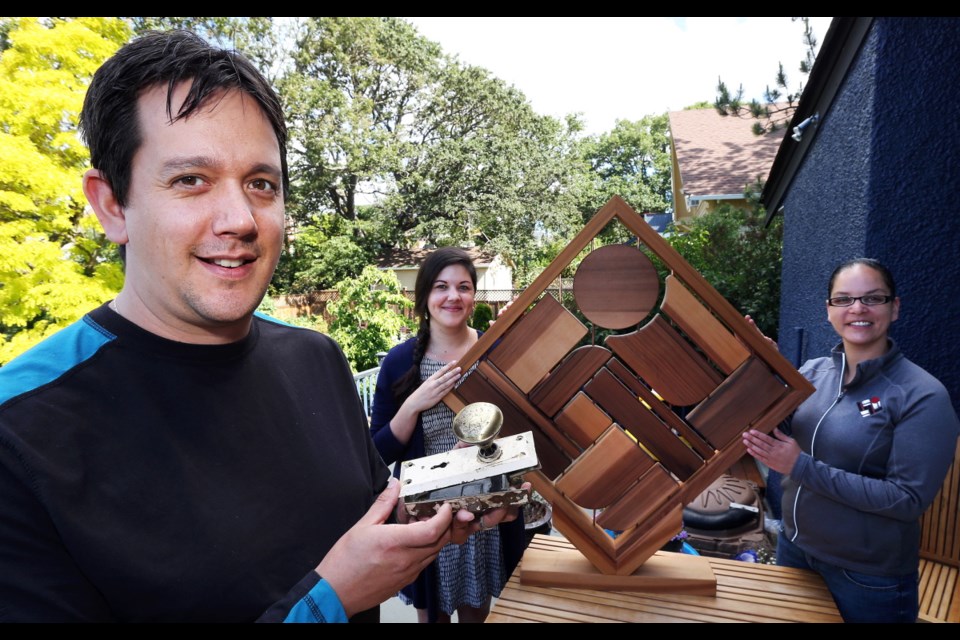Victoria native artist Carey Newman is weaving a blanket consisting of wood and steel — and stories of residential schools and their First Nations pupils.
It will be about eight metres long and 21Ú2 metres wide and made of pieces of cedar, strung together with steel cable.
Mounted in the cedar will be artifacts collected from about 130 former residential schools across Canada. There will also be artifacts from other sites and institutions that played a role in the residential schools program: provincial legislatures, Parliament, the Supreme Court of Canada, churches and native houses.
“We call it the Witness Blanket, and each part will have a connection to a place or story,” said Newman, a Fernwood resident whose background is a mix of north Vancouver Island Kwagiulth and Coast Salish.
Residential schools opened in the 19th century when the federal government determined natives wouldn’t become part of modern Canada without an aggressive plan to educate and assimilate their children. The last such school closed in 1996.
Children were removed from their families and communities and sent to boarding schools usually run by churches. Conditions were often grim, and widespread physical and sexual abuse occurred.
In 2008, to examine and explore the legacy of residential schools, the federal government established the Canadian Truth and Reconciliation Commission. It has agreed to sponsor the creation of Newman’s blanket.
He said blankets, such as the “button blankets” of the B.C. coastal First Nations, are an important part of native culture.
They were a sought-after item for trade with Europeans and evoke horror stories of colonists passing smallpox-infected blankets to native peoples.
But Newman also sees blankets as part of the universal human experience, one of love, comfort and protection —and something that will eventually cover a body in a grave.
For his Witness Blanket, each artifact will be catalogued, with its source and story recorded. These stories will be part of a website accessible to viewers.
It is hoped the project will eventually include 2,500 artifacts.
Newman grew up in Sooke and the closest he came to a residential-school experience was through his father, who was taken from his family in Alert Bay and sent to a school in Mission.
For Newman, the legacy became apparent at age eight, the same age his father was sent away. It was as if the man and the boy suddenly no longer enjoyed any common experiences, he said.
“We went from being a happy-go-lucky kid and his father to two people who couldn’t communicate,” Newman said. “As much as I couldn’t relate to him, he didn’t know how to relate to me.”
With family support and counselling, father and son are now on good terms. But Newman still knows few details about his father’s experiences.
He knows his dad loathes scalloped potatoes and rice pudding, which were often served at the school. He also knows his dad was expelled after he and some pals stole the sacramental wine one night and got drunk sitting under an apple tree.
Newman hopes to go back to Mission to find that apple tree and collect a piece for his blanket.
“It was like an act of defiance that actually set him free,” he said.
But it’s not always about defiance or degradation. Newman met one native elder, a woman, who at first declined the invitation to submit an artifact. Her school experience had been a good one —she learned a new language and was treated well.
Newman said he hopes the woman will submit something, because all experiences are part of the truth.
“We are not calling it a healing project, or assigning anything to it.”
Newman has two people travelling across Canada to help collect the artifacts, and plans to have the piece finished by next March.
Eventually, it can be split into smaller segments to tour around Canada separately. To learn more, go to witnessblanket.ca.
